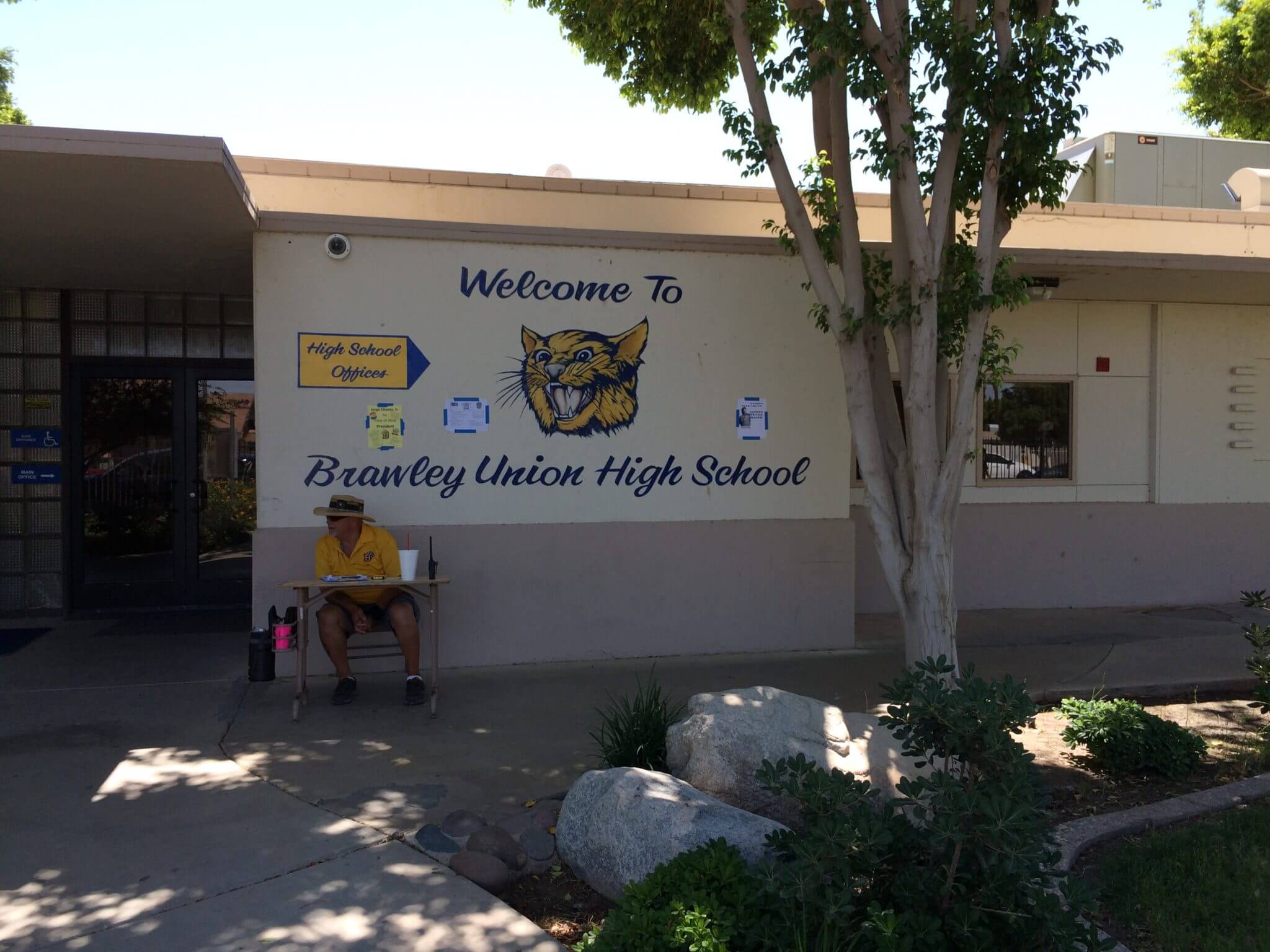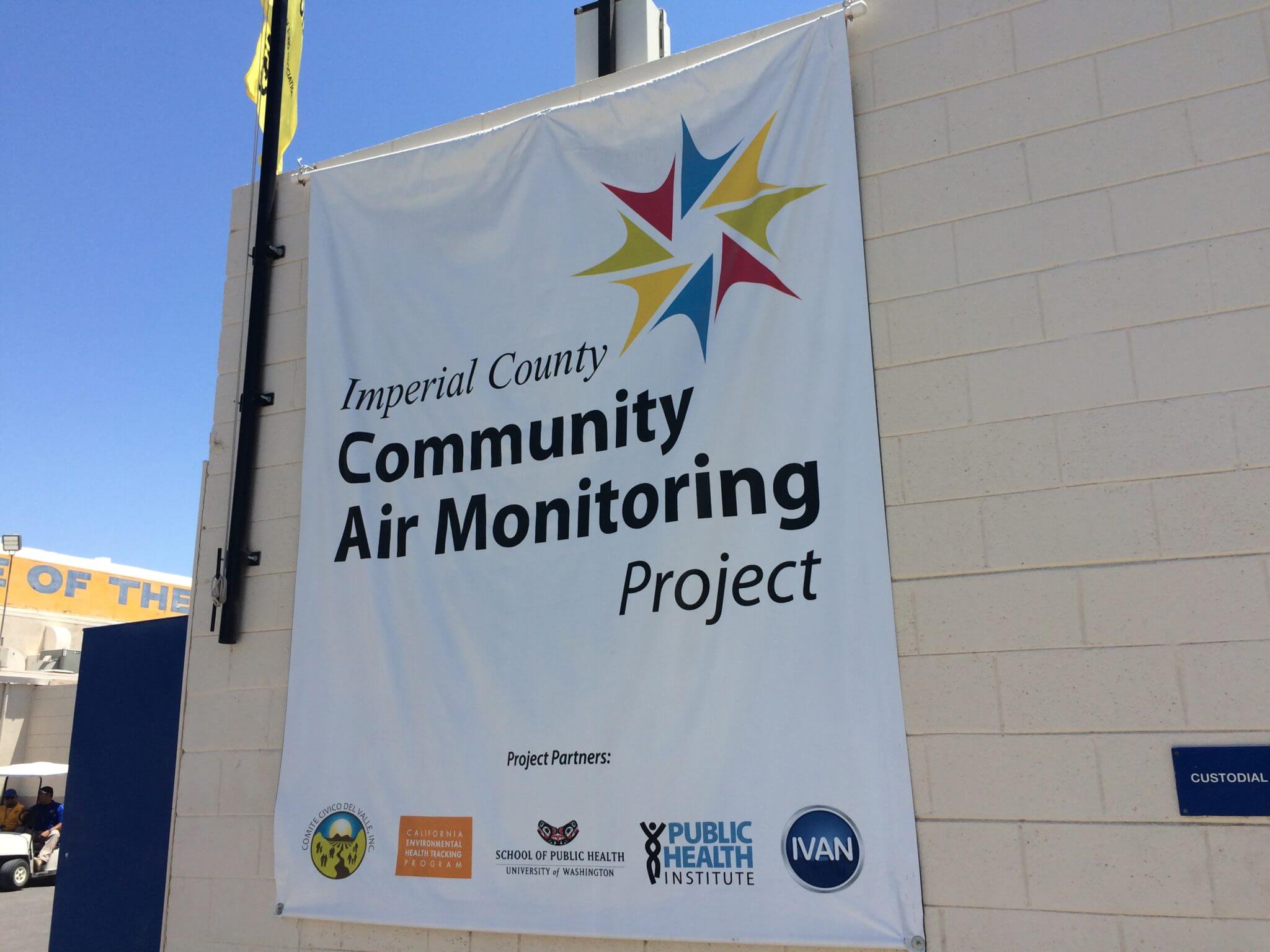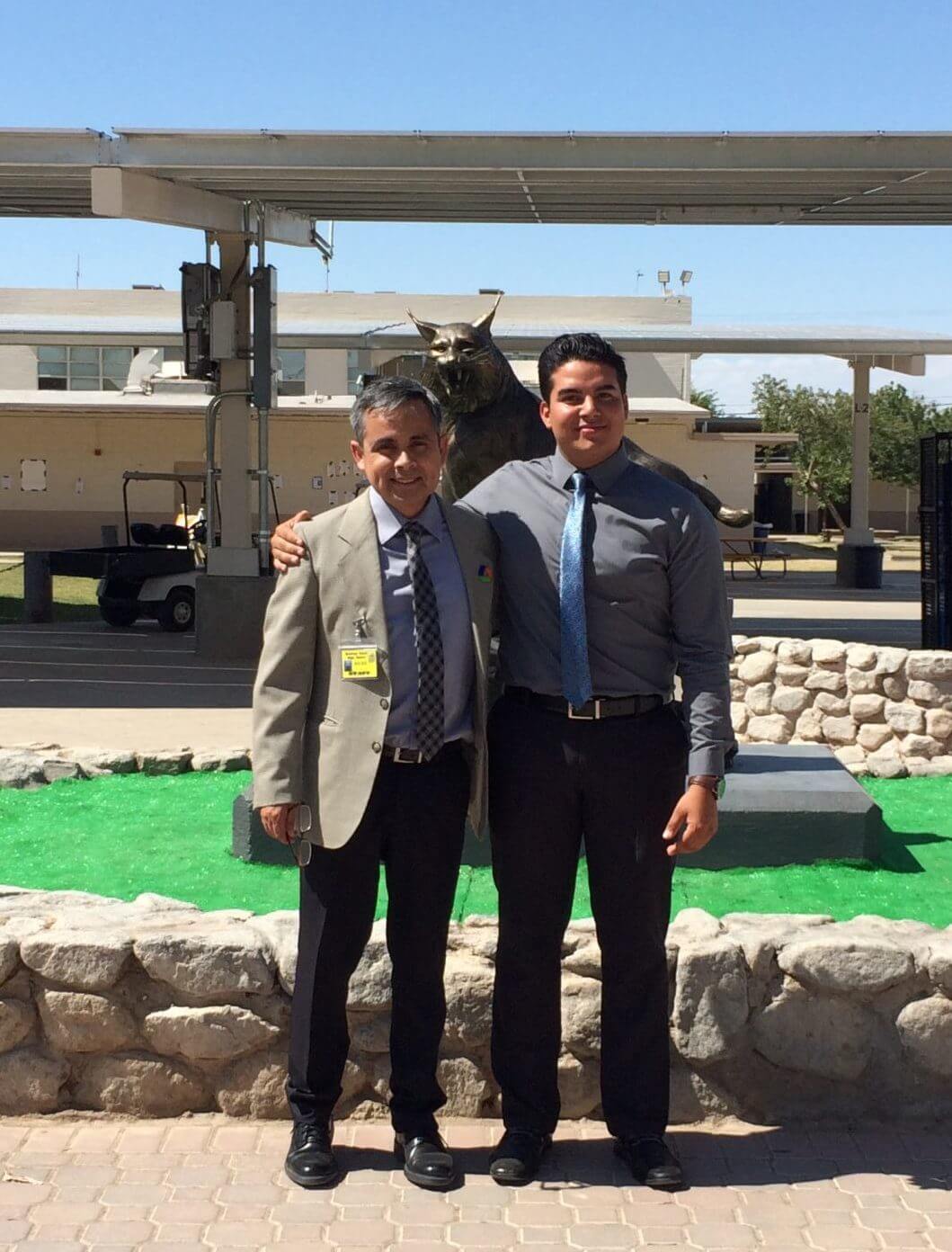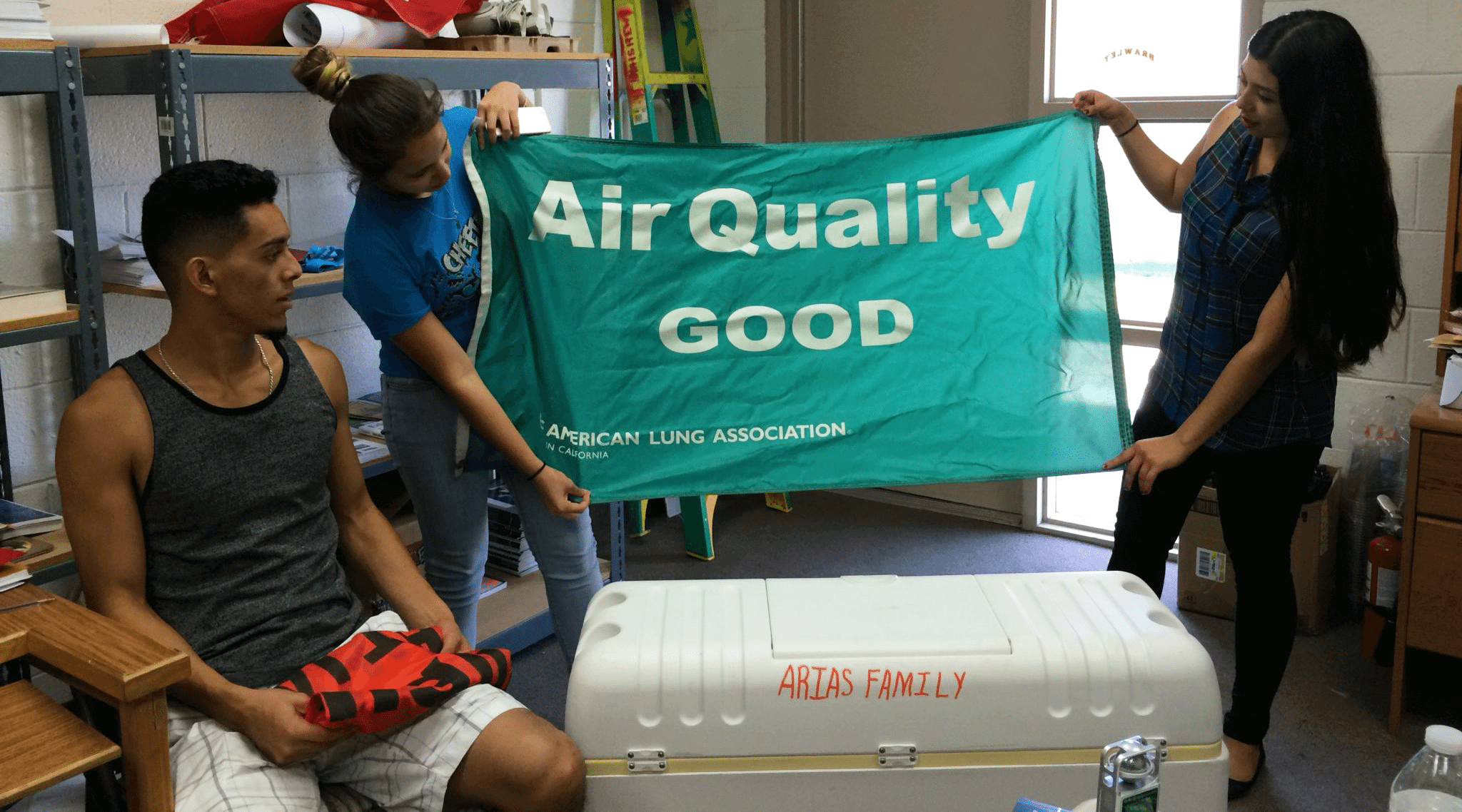It’s a sunny May morning in the Imperial Valley; by 8:00am it’s already 90° and climbing. I arrived the afternoon before and decided to avoid the interstate by taking the 78, a winding two-lane road that at times looks like what I imagine the surface of the moon would.
Extending south from the Salton Sea to Mexico, the valley is a place of extremes. From its range of temperatures (16°F–120°F) and landscapes to its top economic drivers (agriculture and renewable energy) this isolated desert region is a unique microcosm within the state.

I’m here to visit Brawley—specifically Brawley Union High School, where a partnership is thriving that includes school administrators, federal, state, and local government, a community-based nonprofit, a passionate teacher, and an enthusiastic student body working together to increase engagement, open career pathways, and address environmental and community challenges.
Environmental Literacy Steering Committee member (and multiple award-winning teacher) Jose Flores invited me to meet his students so I could hear firsthand about the work he’s shared in our conversations in Sacramento. What they shared with me is both innovative and inspiring, and while the commitment and the players are specific to Brawley, the model they’ve chosen to implement provides an excellent template for others.
Supportive School Administration + Solid Community-based Partner(s) + Committed Educator(s) + Engaged Youth = Successful Environmentally Literate Citizens
Supportive School Administration: When Superintendent Simon Canelez gives me a tour of the school, he and the students exchange greetings as they pass through the open corridors that reflect a mixture of mutual respect and friendliness that is genuine. He and the BUHSD Board of Trustees have put the student community front-and-center, making clear, consistent decisions and backing them up with the funds and staff support to act in their students’ best interests—both academically and as informed citizens and future decision-makers. As district leaders, they opened their doors to innovative curriculum, programming, and partnerships to provide expanded pathways for student engagement and success. With Comite Civico del Valley, Brawley Union High hosts the annual Imperial Valley Environmental Health Leadership Summit; attendance is free to all.

Solid Community-based Partner: Comite Civico del Valle was founded in 1987 by current Executive Director Luis Olmedo’s father and other concerned residents to assist the local farm-worker labor force with social service and health needs in the region, and to assist residents of the Imperial Valley in obtaining citizenship. The organization later widened its mission to include health and social service topics such as environmental health education, nutrition, and asthma awareness. In 2007, Comite expanded its programs to work with government agencies, academia, and underserved groups on specific neighborhood environmental justice issues that culminated in the implementation of the Imperial Valley’s first Environmental Justice Leadership Conference. That conference has been the catalyst for major policy change in the US–Mexico Rural California Border Region. Comite’s overarching mission is to improve the living conditions of their communities through education, capacity building, and civic participation. They work directly with Jose’s students as part of the IVAN program, which includes environmental monitoring, reporting, and enforcement of environmental laws intended to improve health and wellbeing in environmental justice communities—places where residents experience high levels of pollution and environmental hazards and limited access to the economic, political, and social resources needed to address them.

Committed Educator: One would be hard-pressed to find a more passionate and committed teacher than Jose Flores. Born in Tijuana, he moved as a very young child to the US and spent time working in the fields with his parents alongside other migrant workers. He is a BUHSD graduate, a naturalized citizen, and the recipient of several awards, including the Association of California School Administrators Teacher of the Year Award, an American Civic Education Teacher of the Year Award, a Congressional Civic Learning Award, a California Assembly and Senate Recognition in Civic Education Award, and a California School Board Association Golden Bell Civic Education Award. He also received a Presidential Environmental Education Innovator Award in 2016, which was presented to him at the White House (along with a presidential cupcake that he’s told me is in his freezer at home). Jose teaches civics at Brawley, but he teaches a lot more than that. He wants his students to be informed, engaged citizens on every level, and for them to have access to career pathways wider than what they normally experience—agricultural work, teaching, institutional correction jobs, and border patrol. Although Jose’s career achievements have received serious accolades, more often than not when given the opportunity to comment he recognizes the achievements of his students and partners: “I was surprised and happy for the accomplishment of the students, who did a lot of hard work,” said Flores. “My role was as a liaison. I’d mentor out students among different partners: Comite (air and water quality nonprofit monitor), EPA No. 9 Region techs and STEM scientists, who shared information with students to make improvements in the community.”

Engaged Youth: There’s so much I could say about the students I spoke with at Brawley—all of it positive. Any one of Jose’s students can recite the preamble to the US Constitution at the drop of a dime; furthermore they can speak about what the rights guaranteed to us as citizens are and what that means to them personally, and they regularly put them into practice whether by active participation in local politics, tracking local environmental conditions, or involvement in programs that support the community.
In the audio interview below you’ll hear from Jose, some of his students, a representative from Comite Civico del Valle, and one of Jose’s former students—who has taken his experiences via the programs at Brawley and carried them forward beyond the classroom, into the community, and to the career pathways this partnership sought to open for him.
The model at Brawley Union High School exemplifies how the environment as context for learning encourages experiences that actively engage key stakeholders—educators, governing bodies, students, and community—in ways that accentuate the strengths and contributions of each group. It also reinforces the understanding that environmental literacy is not an ‘add-on’; rather it is a way into core subject areas, to wider career pathways, and to increased community engagement and wellbeing. We have much to learn from this Imperial Valley community and its inspiring educators, community partners, and young people.


One Response
Wow, great article, well done. This high school sounds amazing and is giving the right messages to its students, serving them as being the priority and serving them, the students, to become responsible involved adults. Congrats to them and thank you for posting this.